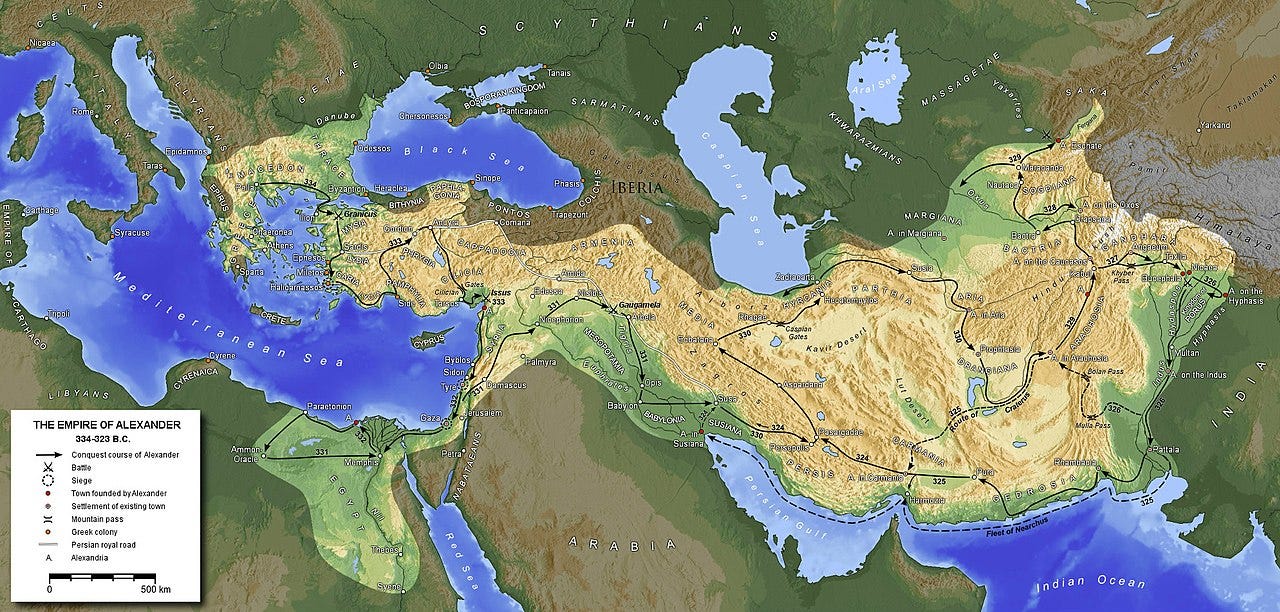The Few
against the many

Taken in the summer of 1989, this photograph of a lone protestor standing his ground against four Chinese tanks was instrumental in drumming up the international condemnation of China’s brutal handling of anti-government protests. It elicited a visceral reaction to defend the few against the many — the weak against the strong — the oppressed against the oppressor.
Today, this has become a religious mantra, which sums up the core belief of the fastest growing religion of the 21st century: Wokism.
The First Palestinian Intifada (“Uprising”) was officially declared a couple of years prior to that photo being taken, in 1987. The Intifada, and what has become a vast network that supports it, started to employ similar images to garner support for the Palestinian people. They made — and still make — every effort to paint Israel as the mighty and more numerous oppressor — coopting and inverting the quintessential Jewish image of little Jewish David fighting the gigantic Philistine Goliath.
A little bit of research, however, reveals that this evocative imagery doesn’t do justice to the full reality.
For starters, the population of Palestinian Arabs in Gaza, the West Bank and Israel proper is around 6 million people, whereas the Jewish population in those same territories is around 7 million. So, locally at least, it’s not a matter of a clear minority vs. majority.
What is a clear minority vs. majority is the single Jewish state smack in the middle of the 49 countries in which Muslims are a very clear majority (if you squint your eyes, you can see Israel as the grey sliver connecting Africa and Asia).

In terms of countries by ethnicity, there are 22 ethnically Arab states and exactly 1 ethnically Jewish country.
By population, nearly a quarter (24%) of humans on planet earth are practicing Muslims, while a whopping 0.2% identify themselves as Jewish.
The real question is should any of this matter?
Should numbers matter in moral questions?
Might certainly does not make Right.
But does Few make True?
This XL explores the notion of the few against the many.

Why do Jews continue to celebrate a military victory that ended 2,157 years ago, waged by a makeshift guerrilla army of Kohanim (priests) against the Greco-Seleucid Empire?
Jewish sovereignty over Israel didn’t last forever even after many battles and skirmishes over the course of seven years, and another 26 years of military and political struggles against Greek hegemony. Two centuries after casting off Syrian-Greek rule, the hard-won Judean sovereignty was smashed by the Roman Empire with their brutal destruction of the Temple and Jerusalem in 70 CE, and their decisive crushing of the Jewish Revolt in 136 CE.
So aren’t we just being whimsically romantic by hearkening back with some candles in our windows to a military triumph two millennia ago whose gains were lost shortly thereafter?
It was no doubt a miraculous victory — the Maccabean militia of untrained fighters was initially outnumbered 8 to 1 against the most powerful military force of the time, with far less funding and firepower.
And yes, according to our tradition, the reconquest of Jerusalem culminated with a miracle of the single flask of oil burning for eight days and the rededication the Temple. But if you look at the bigger picture, it’s hard to understand why it was decided to commemorate this war every winter indefinitely. We’ve fought and won other wars and experienced other, more impressive miracles.
What is this war’s relevance to our lives today — more than two millennia later?
The “Al HaNisim” that is inserted over these eight days into our prayers three-times-a-day, and into our blessing of thanksgiving after eating a meal highlights the following aspects that made this story worthy of yearly commemoration:
מָסַֽרְתָּ גִבּוֹרִים בְּיַד חַלָּשִׁים וְרַבִּים בְּיַד מְעַטִּים וּטְמֵאִים בְּיַד טְהוֹרִים וּרְשָׁעִים בְּיַד צַדִּיקִים וְזֵדִים בְּיַד עוֹסְקֵי תוֹרָתֶֽךָ
You [Hashem] delivered the mighty into the hands of the weak, many into the hands of the few, the morally obtuse people into the hands of the pure-hearted, the evil into the hands of the righteous, and insolent sinners into the hands of those immersed in Your Torah.
I want to make two observations here:
the facts that the Maccabees were relatively “weak” and “few” are significant, but
these factors do not replace the moral features of the two armies at war.
A culture can be dominant and powerful, but not necessarily “morally obtuse,” and not necessarily “insolent sinners.” So what then is the moral meaning of delivering the “mighty into the hands of the weak” and the “many into the hands of the few?”
We must understand this or else we will fall into the same moral psychosis that is plaguing the West — causing large mobs of people to condemn Israel, and Ivy League presidents to defend calls for genocide against Jews.
Most wars throughout history have been about power, land and resources. Some, however, have been about ideals and ideas.
Think about religious wars like the ongoing Muslim Jihad and the Christian Crusades of the Middle Ages, but also think about secular wars of ideas like the Communist Revolutions of the 20th century.
Ideals and ideas are important. They’re certainly worth fighting for as they shape the way we as individuals, communities, and nations think, feel and behave. The world our children will grow up in depends on the ideas that are being debated and fought for today.
The question is not IF people should fight for ideas. The question is: HOW should people fight for ideas?
Should they be fought the same way as wars for territorial gain and resources?
In principle, wars of ideas are should center on the merits of those ideas. Their battles should be open debates in which the artillery is clarity-of-reasoning, and the ammunition fired from one side to the other should be substantiated, factual evidence.
The problem is that this is not the way most wars of ideas have been fought historically.
Most wars of ideas are fought through social influence, coercion, and military expansion — precisely like wars over territory and resources.
The tacit belief is that the more people come to believe the ideas, the more they become the de facto “truth.”
This is, of course, a disastrous fallacy that wreaks havoc in our era of media wars more than it ever has before. In free market democracies, money gets pumped into media machines to race for impressions, likes and shares, and the most viral voices win.
Or in places like China, Iran, Russia, Cuba, Venezuela or North Korea, the government simply outlaws dissent to artificially create the majority.
The following is a quote from Maimonides, who himself was a target of the cancel-culture in his time, nearly a thousand years ago. It is the key to understanding our original dilemma of how to relate to the numbers game when it comes to making sense of a moral conflict between two parties, and we’ll see how it helps us see the light of Chanukah more clearly:
“Truth does not become more true if the entire world agrees with it, nor less true if the whole world disagrees with it.”
Truth is not a popularity contest. Human history since the time of the Maccabean revolt of Chanukah just makes it seem like it is.
Let’s start with Islam and work backwards. As you can visualize in the map below, Islam spread faster than any other religion prior. Muhammad’s caliphate conquered Arabia in 20 years. The Caliphs that followed made it to Tunisia, Afghanistan and Turkey in the 30 years that followed. In less than a century, the Umayyads crossed the Straits of Gibraltar and made it to the Spanish border with the Franks, and nearly to India in the West (see here for maps that show Islam’s medieval and modern expansions into Europe and Asia). Islam spread through a combination of military conquest, rule of law and its subsequent, powerful cultural influence.
As we mentioned above, a quarter of the world is Muslim today. So when Jihadis set their sights on world domination, we need to appreciate that it’s not entirely a pie-in-the-sky dream. They have a strength in numbers.
Christianity, which was already a well-established religion by the time Muhammed was born, spread quite differently, but rapidly nonetheless. Without the military might of a caliphate, it managed to spread through evangelism and ideological compromises with local pagan cults. It did so, quite impressively, despite persistent religious persecution under the Roman Empire. This persecution officially ended with the Edict of Milan in 313 CE, and in a funny turn of events, Christianity became the official religion of the Roman Empire in 325 CE through the Council of Nicaea — a sort of “if you can’t beat them join them” kind of thing. After 325 CE, with imperial assistance, the religion’s expansion accelerated dramatically. The adoption of the name “Catholic,” meaning “universal” was intended to be a self-fulfilling prophecy, which was very effective.
Nearly a third of the world is Christian today.
Where did Christianity and Islam get the notion of such global expansion?
Certainly not from Judaism. Judaism has historically had its hands full keeping Jews involved in Judaism (take my word for it — it ain’t a walk in the park).
Christians and Muslims took inspiration from the legendary Hellenistic military campaigns of Alexander the Great, which weren’t religious per se — unless you consider the fact that he saw himself as a god (son of Zeus actually). His stated aim was the spread of Greek culture and ideas. Having been tutored by Aristotle himself and exposed to the best and the brightest of Macedonia, Alexander was passionate about bringing its worldview to the rest of the world. This passion drove him to be massively successful in the course of a decade, slowed down only by his exhausted army.
Here’s a map of the staggering amount of territory he conquered in the course of a decade (hence the title “the Great”):

If it’s indeed correct to say that the evangelical notion of spreading ideas in this way has its roots in the Hellenistic wars, then the story of Chanukah can be seen in a new light.
The small Maccabean Revolt was not just fighting the large Greek army, they were challenging the Greek ideology which insisted that they were doomed to lose because they were the minority.
From this perspective, it’s not just that the many miraculously fell to the few — it’s that the notion that it is “The Many that Defines the Truth” was defeated by the Few.
It is for this reason that the war of Maccabees itself was, in a sense, deemphasized by the Sages in formulating the holiday of Chanukah. Going to actual war was playing by the rules of the Greeks, but the test of truth — the test of ideas — could only be determined by the Torah’s ideas shining after the war was over. We are no doubt still fighting that war today. Just peruse the 2020 Pew Report on American Jewry.
Many of us are still coming out of a daze since October 7th, but it takes a lot to do so.
This is perhaps why the events that were highlighted were instead the Maccabees’ insistence on purifying the Temple immediately upon recapturing Jerusalem, their commitment to doing things right, and lighting the Menorah with pure olive oil that had not been tainted by the Greek campaign to defile the Temple.
As for the miracle of the oil itself:
A small quantity (1 jug) had the quality of lasting for eight days.
Wars of ideas should be fought on the basis of the quality of the ideas, not as a function of the quantity of people claiming to espouse them.
If we allow it to be a numbers game, then it’s simply the bigger the crowd, the louder their roar, the more fear they monger, and the more the other side’s ideas will be silenced.
The guiding principle in most wars of ideas is unfortunately: Fright Makes Right.
Although, pragmatically speaking, social media, demonstrations and petitions are vital tools to survive in representative democracies like the one most of us our fortunate enough to live in, we need to call out how wrong it is to figure out who is right in this way.
While, of course, it’s true that good ideas deserve to be spread, and bad ideas deserve to atrophy and disappear, pushing for quantity before quality puts the cart before the horse.
Good ideas should be demonstrated to be good ideas and spread on those merits.
Quantity should be borne out of quality. Not vice versa.
21st century Western liberal movements have done a great job of imposing and spreading the idea that the great evil of the world is colonialism.
Colonialism is essentially the subjugation of one people by another — classically, for some sort of benefit to the colonizer. Ideological colonialism is everything we’ve been talking about — using strength in quantity to spread ideas, whether or not they would be adopted on the basis of their quality.
The irony is that Western liberal movements “drink the same kool aid” as the colonialists they have defined as the enemy. Nothing could be less liberal than their efforts to demonstrate to the world that they are the majority and thereby silence the minority who disagrees with them.
Chanukah is meant — even today — to hit “reset” in our thinking that has been programmed by the dominant culture in the world to lead us to believe that this is a numbers game.
It’s not.








